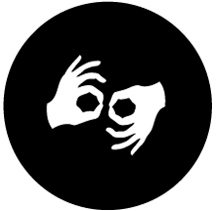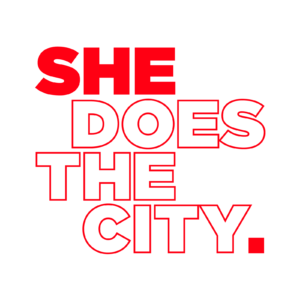Streaming of this film is only available to viewers in Canada. Virtual Q&A is available worldwide.
كاغذ پاره ها
- Available to stream online: Fri, Oct 23, 7:00pm to Sun, Oct 25, 7:00pm
- اکران آنلاین: جمعه، ۲۳ اکتبر، ساعت ۱۹۰۰ تا یکشنبه، ۲۵ اکتبر، ساعت ۱۹۰۰
- Virtual panel/Q&A: Sun, Oct 25, 7:00pm
- گفتگوی آنلاین/ جلسه پرسش و پاسخ: یکشنبه، ۲۵ اکتبر، ساعت ۱۹۰۰
اکران آنلاین این فیلم فقط برای ساکنین کانادا ممکن می باشد. جلسه ی پرسش و پاسخ مجازی برای همگان قابل دسترسی است.
Behzad Nalbandi / 2019 / Farsi with English subtitles / Iran / 62 min / North American Premiere
بهزاد نعلبندی / ۲۰۱۹ / فارسی با زیرنویس انگلیسی / ایران / دقیقه / نخستین اکران آمریکای شمالی
GENRE: ANIMATED, DOCUMENTARY
TYPE: FILM
In preparation for visits from foreign dignitaries, the authorities in Tehran clear the streets of homeless people, sex workers and drug users. Those who get picked up are taken to special detention centers outside the city. Stripped of their rights, dignity and freedom, the authorities hold them there until the outside world’s eyes are directed elsewhere. Then the men are released to go back out onto the streets. But the women are not: instead, they become official state prisoners for life. First time feature film Director Behzad Nalbandi found ways around the official channels and gained access to one of the women’s prisons, where he used a sound recorder to document the harrowing stories of its inmates. Utilizing original stop-motion animation to illustrate the accounts of violence, humiliation, poverty and addiction, as well as the Director’s own impressions of the bleak detention center. Such inventive animation allows Nalbandi to offer these “invisible” women a platform without exposing their identity. What this powerful five-years-in-the-making documentary does reveal is the grim reality concerning the position of women in Iranian society—and these women in particular.
برای بازدید های مقامات عالی رتبه خارجی، مسئولان شهرداری تهران خیابان های شهر را از بی خانمان، کارگران جنسی و معتادان پاکسازی و بازداشت شدگان را به مکانی خارج از شهر انتقال می دهند. محروم از حقوق، عزت و آزادی خود مسئولین آنها را در این اماکن نگه می دارند تا زمانی که دنیای بیرون توجهش معطوف چیز دیگری شود. سپس، مردان آزاد می شوند اما زنان می مانند و تبدیل به زندانیان حکومت برای طول عمرشان می شوند. بهزاد نعلبندی با اولین فیلم بلند خود، به یکی از این زندان های زنان دسترسی پیدا کرده و با استفاده از دستگاه ضبط صدا داستان های دلخراش زندانیان را مستند کرده است. با به کارگیری خلاقانه از تکنیک استاپ موشن، این مستند–انیمیشن وضعیت خشونت، تحقیر، فقر و اعتیاد را در این اماکن به تصویر می کشد. فیلمساز با انتخاب نوآورانه متریال و تکنیک متناسب با موضوع فیلم، فضایی را برای حضور این زنان “نامرئی“، بدون فاش شدن هویت شان فراهم می کند. این فیلم مستند تاثیر گذار که تولید آن ۵ سال طول کشیده است موقعیت ظالمانه و تلخ زنان را در جامعه ایران و بخصوص این زنان زندانی را نمایان می کند.
ACCESSIBILITY
ASL Interpreted, Open Captions, Active Listener
An Active Listener will be available Sun, Oct 25 from 7-9pm to support this program.
Your active listener for this program is Kat.
You can connect with Kat by phone (talk or text) at (647) 474-2338 or by email at katrissing@gmail.com.
CO-PRESENTED WITH
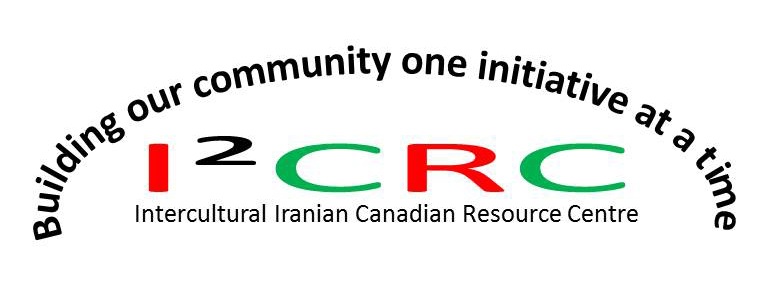
JOIN THE CONVERSATION
Following the screening of The Unseen, join us for a virtual panel with graphic artist and documentary filmmaker Behzad Nalbandi to discuss the addiction crisis in Tehran and the harsh realities of the city’s homeless population. Moderated by representatives from the Intercultural Iranian Canadian Resource Centre.
:در گفتگو همراه شوید
بعد از اتمام اکران فیلم، با ما و هنرمند گرافیست و فیلمساز بهزاد نعلبندی همراه شوید تا بیشتر درباره ی بحران اعتیاد در تهران و واقعیت های سخت جمعیت بی خانمان های شهر بحث و گفتگو کنیم. این جلسه مجازی توسط نمایندگانی از مرکز فرهنگ ایرانی– کانادایی (Intercultural Iranian Canadian Resource Centre) مدیریت می شود.
ALSO OF INTEREST
- Available to stream online: Wed, Oct 14, 6:00pm to Fri, Oct 16, 6:00pm
- Virtual Q&A: Fri, Oct 16, 6:00pm
Streaming of this film is only available to viewers in Canada. Virtual Q&A is available worldwide.
Afsaneh Salari / 2020 / Farsi with English subtitles / Iran / Philippines / 80 min / North American Premiere
GENRE: DOCUMENTARY
TOPIC: REFUGEES
TYPE: FILM
In 1982, 1.5 million Afghan refugees fled the USSR’s invasion of Afghanistan. Leaving behind the war of their home, starting their new lives in Iran, The Silhouettes witnesses a family attempting to make sense of their new reality, which presents its own unique sets of challenges. Touching on the effects of war, trauma, displacement and isolation, we go on a journey with Taghi, one of the younger members of the family. Caught between the confining reality of his people’s place in Iranian society and his desire to return to his continually war-ravaged home in Afghanistan, Taghi begins to explore his future, navigating the familial responsibilities in this increasingly precarious situation. Trapped between his suffocating existence in Iran that is rife with discrimination and stigma, while having to face returning to his homeland, still in the midst of war. What future awaits him in each land?
Screening with
Stray Dogs Come Out at Night
Hamza Bangash | 2019 | Pakistan | Punjabi with English subtitles | 11 minutes
Iqbal, a migrant sex worker, cannot come to terms with his illness. Desperate for respite, he convinces his uncle to take a day trip to the beach. The Arabian Sea beckons.
ACCESSIBILITY
ASL Interpreted, Open Captions, Active Listener
An Active Listener will be available Fri, Oct 16 from 6-8pm to support this program.
Your active listener for this program is Kat.
You can connect with Kat by phone (talk or text) at (647) 474-2338 or by email at katrissing@gmail.com.
CO-PRESENTED WITH

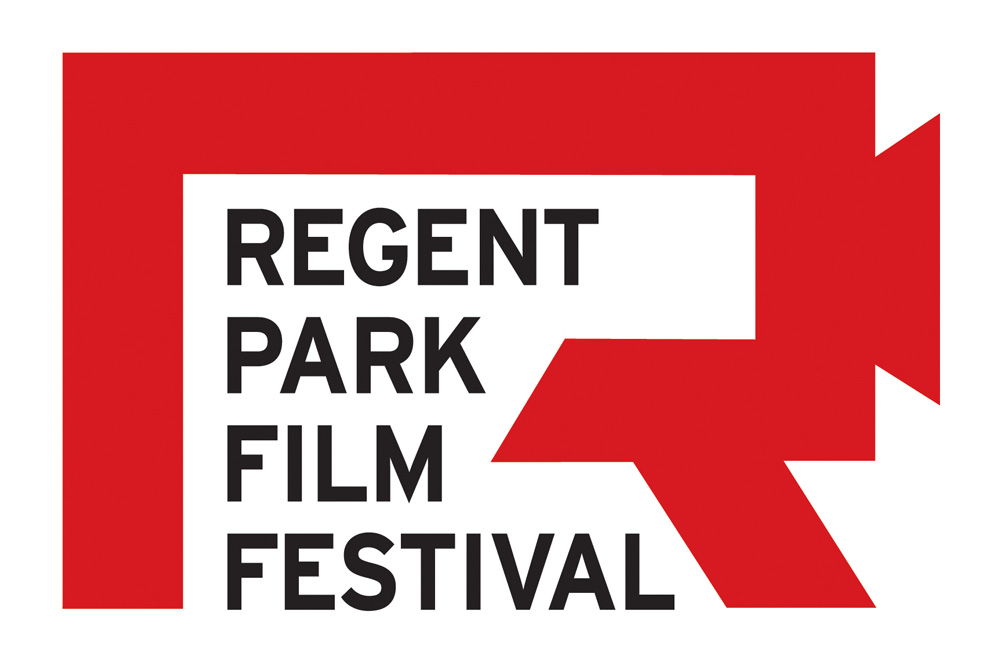
JOIN THE CONVERSATION
Living through waves of political reform spurred by transnational interference undoubtedly challenges one’s sense of identity. The Soviet invasion of Afghanistan in 1979 uprooted millions of Afghans who sought refuge elsewhere, including the family featured in The Silhouettes. How might this inherited cultural and geographical displacement be experienced by younger generations of Afghans in Iran or the Afghan diaspora? Is it possible to seek some semblance of resolution by returning to one’s homeland? These issues will be explored in the post-screening Q&A with director Afsaneh Salari. Moderated by Toronto-based filmmaker and programmer Aisha Jamal.
ALSO OF INTEREST
پروژه ازدواج
- Available to stream online: Thu, Oct 15, 2:30pm to Sat, Oct 17, 2:30pm
- اکران آنلاین: پنجشنبه، ۱۵ اکتبر، ساعت ۱۴۳۰ تا شنبه، ۱۷ اکتبر، ساعت۱۴۳۰
- Virtual panel: Sat, Oct 17, 2:30pm
- جلسه مجازی: شنبه، ۱۷ اکتبر، ساعت ۱۴۳۰
Streaming of this film is only available to viewers in Ontario, Canada. Virtual Q&A is available worldwide.
.اکران آنلاین این فیلم فقط برای ساکنین اونتاریو قابل دسترسی است
.جلسه ی مجازی پرسش و پاسخ برای همگان قابل دسترسی است
Atieh Attarzadeh / Hesam Eslami / 2020 / Farsi with English subtitles / Iran / France / Qatar / 80 min / Canadian Premiere
عطیه عطارزاده/ حسام اسلامی / ۲۰۲۰ / فارسی با زیرنویس انگلیسی / ایران/فرانسه/قطر / ۸۰ دقیقه / نخستین اکران کانادا
GENRE: DOCUMENTARY
TOPIC: FAMILY, PSYCHIATRY
TYPE: FILM
What happens when inpatients of a psychiatric institution are being encouraged to get married to each other and build lives together within the hospital grounds? The Marriage Project, a thematically unique and intriguing Iranian documentary, tells you just that. The film is set almost entirely in Ehsan’s House, a psychiatric facility in southern Tehran housing around 500 patients. With unprecedented access to the hospital’s communal spaces and events, Directors Atieh Attarzadeh and Hesam Eslami chronicle a bold project conducted by the hospital’s director, Dr. Farhad Ramezanejad. Historically, the hospital has always segregated men and women. But Ramezanejad proposes a social experiment – he advocates for patients to form relationships, get married and live as a family within Ehsan’s House. Facing scrutiny from his colleagues and a variety of responses from the patients, Ramezanejad is determined to get the project off the ground. But are Ehsan’s House’s patients ready to get married? And who exactly should decide that?
چه اتفاقی می افتد اگر بیماران یک مرکز روانپزشکی تشویق به ازدواج یکدیگر شوند و شروع به زندگی مشترک داخل مرکز درمانی کنند؟ پروژه ازدواج، مستندی منحصر به فرد و جذاب است که بر حول محور همین سوال می گردد. این فیلم تقریبا به طور کامل در خانه ی احسان، یک مرکز روانپزشکی در جنوب تهران که حدود ۵۰۰ بیمار را در خود جای می دهد، می گذرد. عطیه عطارزاده و حسام اسلامی کارگردانان این فیلم، در فیلم خود پروژه ی خیره انگیز مدیر این مرکز روانپزشکی، فرهاد رمضان نژاد را روایت می کنند. به طور معمول، زنان از مردان در این بیمارستان جدا زندگی می کنند. اما آقای رمضان نژاد تجربه ی اجتماعی جدیدی را پیشنهاد می کند– او بیماران خود را تشویق به ایجاد رابطه، ازدواج و زندگی مشترک در خانه ی احسان می کند. رمضان نژاد با اینکه با موجی از انتقادات از سوی برخی از همکارانش و بیماران مرکز روبرو است، مصمم است تا این پروژه را عملی کند. اما آیا بیماران مرکز روانپزشکی احسان آماده ی ازدواج هستند؟ و دقیقاً چه کسی باید در این باره تصمیم بگیرد؟
Screening with
If I Die Please Delete My Soundcloud
Natasha Matila-Smith | 2019 | Aotearoa / New Zealand | English with English subtitles | 8 minutes
Captured on video stillness, wondering and a matrix of existential dread. “In the middle of a sleepless night a variety of digital devices provide comfort and distraction for a restless mind. But does it help?”
ACCESSIBILITY
ASL Interpreted, Open Captions, Active Listener
An Active Listener will be available Sat, Oct 17 from 2:30-4:30pm to support this program.
Your active listener for this program is Christeen.
You can connect with Christeen by phone (talk or text) at (289) 779-4114 or by email at christeen.salik@gmail.com.
CO-PRESENTED WITH
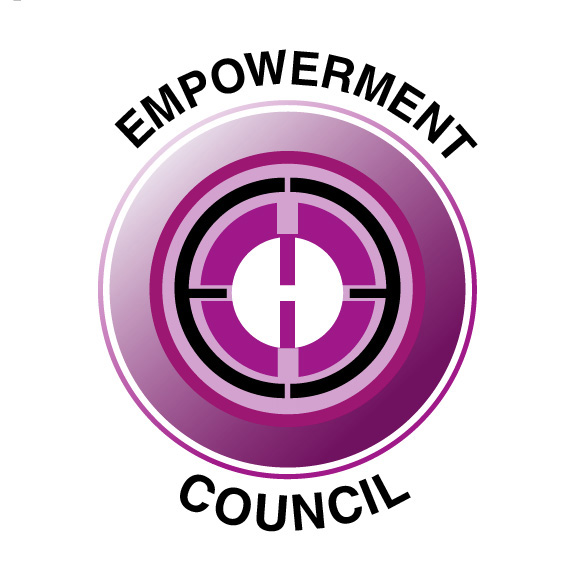
JOIN THE CONVERSATION: Please join the Directors in a conversation moderated by filmmaker and journalist Aref Mohammadi
:در گفتگو همراه شوید
پس از اتمام اکران فیلم در گفتگویی با کارگردانان فیلم که توسط عارف محمدی، فیلمساز و روزنامه نگار مدیریت می شود، همراه ما شوید
How do we imagine conventional clinical spaces in relation to how we imagine life in the wider world? The Marriage Project allows us to consider ideas of personhood, love, and choices in the realm of institutionalized settings and what a lack of those experiences might suggest. The themes for this panel are centred on Iranian perspectives on mental health and relationships as well as alternative forms of therapy and community.
چگونه می توان فضاهای متعارف درمانی را در ارتباط با زندگی خارج از آن تصور کنیم؟ پروژه ازدواج این امکان را فراهم می کند تا ایده هایی از قبیل فردیت، عشق و حق انتخاب را در حیطه ی فضاهای سازمانی بررسی کنیم و به تاثیر نبود این تجربیات هم بپردازیم. موضوعات این جلسه متمرکز بر دیدگاه های ایرانی در رابطه با سلامت روح و روان است و به آلترناتیوهای درمان و جامعه هم می پردازد.
ALSO OF INTEREST
- でのの上映はオンラインでワールドワイドとなっています。世界各国どこでも見れます。 スケジュール (カナダEDT時間) 上映 - Fri, Oct 16, 8:30pm から Sun, Oct 18, 8:30pm
- Available to stream online: Fri, Oct 16, 8:30pm to Sun, Oct 18, 8:30pm
- Virtual Q&A: Sun, Oct 18, 8:30pm
Streaming of this film and virtual panel is available to viewers worldwide.
Hiroshi Sunairi / 2018 / Japanese with English subtitles / Japan/USA / 76 min / North American Premiere
砂井宏 / 2018 / 英語字幕付き日本語 / 日本/アメリカ / 76分 / 北米初演
GENRE: DOCUMENTARY
TOPIC: FREEDOM
TYPE: FILM
袴田巌という心のラビリンス
元プロボクサー・袴田巌は、1968年、無実を訴えつつも強盗殺人の容疑で死刑判決を言い渡され、史上最長の48年間を独房で過ごしました。しかし2014年、静岡地裁は死刑判決の決め手となった証拠について、捏造された可能性があることを認めました。こうして袴田さんは釈放され、現在は郷里の静岡県浜松市で、姉の秀子さんと平穏な生活を送っています。
私は、釈放から一年が経った2015年、79歳になった袴田さんに出会い、彼の心に今も残りつづけている、48年間という計り知れない孤独についてインタビューしました。完治していない拘禁症状のために生じる袴田さんの妄想、風化しつつある記憶、そして無実を証明するために勝つのだという決意、こうした様々な情報と情動が複雑に入り組んだ迷宮が、そこにはありました。この映画は、袴田さんの心の迷宮を辿りながら、人生の苦境にねじ曲げられた彼の精神と、そこに現れる驚くべき明快な論理の双方を、記録したものです。
Iwao Hakamada, a former professional boxer was sentenced to death in 1968 for mass murder and held on death row for 48 years, the longest solitary confinement in history. In 2014, Hakamada was granted immediate release after Shizuoka district court found that the evidence against him had been fabricated. One year later, now 79 years old, Mr. Hakamada suffers from prison psychosis. While adjusting to his newfound freedoms, he navigates a labyrinth of delusions within his life’s predicaments. This phenomenal documentary is a sensitive and intimate portrait with a dazzling score by Arto Lindsay (DNA, The Lounge Lizards, Ambitious Lovers) capturing Hakamada’s victorious will against the immeasurable consequences of spending nearly half a century in complete solitude.
Screening with
Bittersweet
Sohrab Hura | 2019 | India | English | 13 mins
In this experimental and visually enriching audio-visual essay, photographer Soharb Hura documents his intimate family life, his mother, who was diagnosed with acute paranoid schizophrenia, and her dog, Elsa. Over ten years, a project that began as a coping mechanism reveals the banalities of everyday home life.
ACCESSIBILITY
ASL Interpreted, Open Captions, Active Listener
An Active Listener will be available Sun, Oct 18 from 8:30-10:30pm to support this program.
Your active listener for this program is Kat.
You can connect with Kat by phone (talk or text) at (647) 474-2338 or by email at katrissing@gmail.com.
CO-PRESENTED WITH
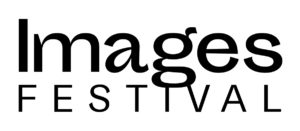

JOIN THE CONVERSATION: Q&A with Hiroshi Sunairi
Following the screening of 48 Years – Silent Dictator, join filmmaker Hiroshi Sunairi and James Ruston from Toronto Prisoners’ Rights Project for a virtual Q&A to discuss director’s experience documenting the life of Iwao Hakamada and the impact of the prison system on one’s mental health.The discussion will be moderated by Amina Mohamed, a representative from Prisoners with HIV/AIDS Support Action Network.
ALSO OF INTEREST
- Available to stream online: Sat, Oct 17, 7:00pm to Mon, Oct 19, 7:00pm
Streaming of this film is available to viewers worldwide.
Sidse Torstholm Larsen, Sturla Pilskog / 2019 / Greenlandic, English, Danish with English Subtitles / Kalaallit Nunaat / Greenland / Denmark / Norway / 75 min / Toronto Premiere
GENRE: DOCUMENTARY
TYPE: FILM
Winter’s Yearning is an eye-opening portrait documentary of the small fishing town of Maniitsoq, Greenland, which has been selected as the next plant location for US aluminium giant ALCOA. An aluminium plant could provide a useful step towards Greenlandic independence. However, visions of the anticipated windfall fade into a waiting game. Directors Sidse Torstholm Larsen and Sturla Pilskog intertwine the lives of three Maniitsoq residents: a social worker, a young woman and the town’s ‘aluminium coordinator’. Through attentively layering their stories, situations and personal efforts towards self-sufficiency, the atmosphere of a small-town yearning for progression and change is beautifully portrayed.
Screening with
Carlotta’s Face
Valentin Riedl and Frédéric Schuld | 2018 | Germany | German with English subtitles | 5 minutes
Carlotta’s Face illuminates a relationship dysfunction in its sensitive portrayal of a woman who suffers from prosopagnosia, the inability to recognize faces, and her salvation through art.
ACCESSIBILITY
ASL Interpreted, Open Captions, Active Listener
An Active Listener will be available Mon, Oct 19 from 7-9pm to support this program.
Your active listener for this program is Amanda.
You can connect with Amanda by phone (talk or text) at (647) 696-0893 or by email at amanda.virtualdesk@gmail.com.
CO-PRESENTED WITH

ALSO OF INTEREST
- Available to stream online: Sun, Oct 18, 7:00pm to Tue, Oct 20, 7:00pm
- Virtual panel: Tue, Oct 20, 7:00pm
Streaming of this film and virtual panel is available to viewers worldwide.
Seung-Jun Yi / 2019 / Korean with English subtitles / South Korea / 109 min
GENRE: DOCUMENTARY
TOPIC: FAMILY
TYPE: FILM
A North Korean housewife, Ryun-hee Kim went to China to receive healthcare only to end up in South Korea trying to pay off her medical debts. Once she was discovered by South Korean authorities, she was alleged of being a North Korean spy and forced to become a South Korean citizen. Separated from her family with no hope of seeing them again, Ryun-hee starts her extensive and harrowing fight to return home. She tries to smuggle herself out of South Korea, first by seeking political asylum and then organizes protests to raise awareness about North Korean citizens trapped in South Korea against their will. Her far-reaching attempts to reunite with her family don’t stand a chance against aggressive propaganda tactics and ongoing complex politics between two countries. After seven years of continuous struggle, Ryun-hee dreads the growing distance between her and her family as their reunion seems far away and improbable.
JOIN THE CONVERSATION
In Shadow Flowers, viewers are invited into an observational space to question preconceived notions of what freedom grants and what oppression might look like. The polarizing narratives about North and South Korea looms above Ryun-hee Kim and her simple desire to return to family. Join the Q&A with director Seung-Jun Yi to discuss the isolating effects of being caught in liminal spaces dictated by bureaucracy as it pertains to North and South Korean relations. Moderated by Jack Kim, board chair of HanVoice.
ACCESSIBILITY
ASL Interpreted, Open Captions, Active Listener
An Active Listener will be available Tue, Oct 20 from 7-9pm to support this program.
Your active listener for this program is Kat.
You can connect with Kat by phone (talk or text) at (647) 474-2338 or by email at katrissing@gmail.com.
CO-PRESENTED WITH




ALSO OF INTEREST
- Available to stream online: Mon, Oct 19, 8:45pm to Thu, Oct 22, 8:45pm
- Virtual Q&A: Thu, Oct 22, 5pm
Streaming of this film is only available to viewers in Ontario, Canada. Virtual Q&A is available worldwide.
Martine Deyres / 2019 / French with English subtitles / France / Switzerland / Belgium / 77 min / Toronto Premiere
Martine Deyres / 2019 / français-sous-titres anglais / France / Suisse / Belgique / 77 min / Première torontoise
GENRE: DOCUMENTARY
TOPIC: TRAUMA
TYPE: FILM
La version française suvira.
In the Saint-Alban psychiatric clinic in France’s Lozère region, they didn’t use straightjackets, solitary confinement or other forms of coercion. Patients moved freely, received ergonomic therapy, worked at a nearby farm and even went on trips with supervisors. During World War II, the institute also housed refugees, including many Jews.
Weaving recently discovered archival materials with current interviews, this captivating documentary presents the instigators of such unconventional approaches between 1936 and the mid-1970s: Spanish Dr. Tosquelles, a communist persecuted by Franco, and his colleague Lucien Bonaffé, both pioneers of ‘institutional psychology’. They emphasized social and cultural activities that supported patients in different ways – a fruitful approach that has since fallen out of favour, but which was also a source of inspiration for surrealists like Paul Éluard, Art Brut pioneer Jean Dubuffet and trailblazer of de-colonisation theories, Frantz Fanon. Although over 45,000 psychiatric patients died in French hospitals between 1939-1945; Les heures heureuses is a testament and urgent appeal to apply courageousness and inventiveness in today’s mental health healing spaces.
A l’hôpital psychiatrique de Saint-Alban dans le département de la Lozère en France, il n’y avait pas de camisole de force, pas d’enfermement solitaire ni d’autres formes d’oppression. Les patients se déplaçaient librement, bénéficiaient d’une thérapie ergonomique, travaillaient dans une ferme avoisinante et faisaient même des excursions avec leurs soignants. Pendant la Seconde Guerre mondiale, l’institution avait abrité des réfugiés parmi lesquels de nombreux juifs.
Conjuguant des archives récemment retrouvées avec des entrevues actuelles, ce documentaire passionnant s’intéresse aux novateurs de ces démarches atypiques entre 1936 et le milieu des années 70 : le docteur espagnol Tosquelles, communiste persécuté par Franco, et son collègue Lucien Bonaffé, tous deux des pionniers de « la psychologie institutionnelle ». Ils mettaient en valeur les activités sociales et culturelles qui aidaient leurs patients de diverses manières – une démarche bénéfique qui a été mise de côté depuis mais qui fut aussi une source d’inspiration pour les surréalistes comme Paul Éluard ou pour le pionnier de l’Art Brut Jean Dubuffet ou encore pour l’initiateur des théories de la décolonisation Franz Fanon. Bien que plus de 45,000 internés soient morts dans les hôpitaux psychiatriques français entre 1936 et 1945, Les heures heureuses s’érige en témoignage et constitue un appel urgent au courage et à la créativité dans les lieux actuels de thérapie de santé mentale.
Screening with
Les Voix du dedans
Elina Chared | 2019 | France | French with English subtitles | 25 mins
Elina Chared/2019/France/Français-sous-titres anglais/25 min
A portrait film of a woman who fights to exist in tandem with her gift for hearing voices. In a cinematic verité glimpse of daily life, somewhere between suffering, optimism and recovery. Marieanne intimately conveys how she continually re-creates, performs and sometimes loses faith.
Un film portrait d’une femme qui lutte pour vivre en tandem avec sa faculté d’entendre des voix. Dans cet aperçu du genre cinéma vérité de sa vie quotidienne, quelque part entre souffrance, optimisme et reconstruction, Marianne explique en détails comment, continuellement, elle se réinvente, agit et quelque fois perd confiance
ACCESSIBILITY
ASL Interpreted, Open Captions, Active Listener
An Active Listener will be available Thu, Oct 22 from 5-7pm to support this program.
Your active listener for this program is Kat.
You can connect with Kat by phone (talk or text) at (647) 474-2338 or by email at katrissing@gmail.com.
CO-PRESENTED WITH
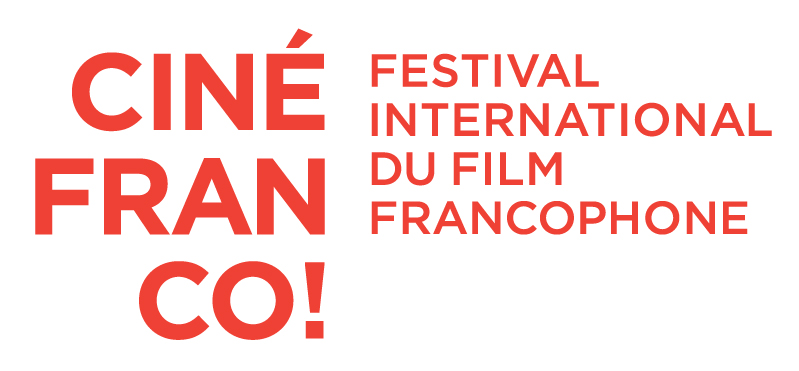
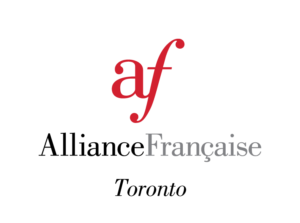
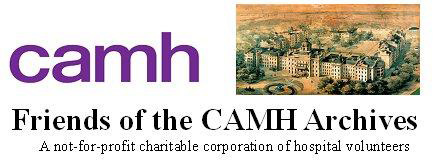
JOIN THE CONVERSATION: Q&A with Director Martine Deyres, moderated by Cinefranco's Artist and Executive Director Marcelle Lean
JOIGNEZ-VOUS À LA CONVERSATION: Questions/Réponses avec la réalisatrice Martine Deyres et Marcelle Lean, Directrice artistique générale de Cinéfranco, comme animatrice.
Following the screening of Les heures heureuses, join filmmaker Martine Deyres to discuss her latest film and her remarkable use of archival material to tell the story of the French psychiatric institution Saint-Alban.
Après avoir visionné le film Les heures heureuses, retrouvez la documentariste Martine Deyres pour discuter de son dernier film et de son remarquable travail d’archives qui racontent l’histoire de l’hôpital psychiatrique français de Saint-Alban.
ALSO OF INTEREST
- Available to stream online: Tue, Oct 20, 9:00pm to Thu, Oct 22, 9:00pm
- Virtual panel/Q&A: Thu, Oct 22, 8:30pm
Streaming of this film is only available to viewers in Canada. Virtual Q&A is available worldwide.
Gwanjo Jeong / 2019 / Korean with English subtitles / South Korea / 95 min / Canadian Premiere
GENRE: DOCUMENTARY
TYPE: FILM
Nocturne is the story of a family. The documentary follows Seong-ho, a young piano virtuoso living with autism. With an extraordinary talent in music, his mother and primary caretaker dedicates her whole life building a career for her son as a professional musician. In contrast, Seong-ho’s younger brother, Gun-ki is relegated to a world of video games and television. Gun-ki’s resentment slowly begins to grow when he is forced to give up his own interest in music to maintain Seong-ho’s spotlight. Moreover, Gun-ki feels like he has been neglected by his mother, who spends most of her time taking care of Seong-ho and trying to advance his career. When the two brothers embark on an independent European trip, the already contentious brotherly relationship crashes into chaos. It also poses some difficult questions: what will happen to Seong-ho if his mother is no longer there? Will Gun-ki have his back, or will his music legacy crumble?
Screening with
Animal Calling
Candice Dixon | 2020 | Canada | English | 6 minutes | Ontario Premiere
A short documentary following a recently-graduated, young veterinarian as she enjoys a rare, relaxing morning in her serene country home. As she reflects on the mental health crisis currently impacting veterinary medicine, we’re intermittently transported to her place of work and shown the emotional and psychological challenges faced by those working in animal care.
JOIN THE CONVERSATION
Sibling dynamics are unique by nature; sometimes, it swings from moments of companionship to moments of competition. In the case of the family in Nocturne, the subject of autism adds another layer of relational negotiation as they seek to understand how to manage acts of care and responsibility. What are some of the realities that individuals on the autism spectrum face when they navigate the world independently and what pressures and expectations do their core support networks face? Join moderator Kat Singer and panelists Azed Majeed and Aidan Lee as they dive deeper into how these complexities are presented in Nocturne.
ACCESSIBILITY
ASL Interpreted, Open Captions, Active Listener
An Active Listener will be available Thu, Oct 22 from 8:30-10:30pm to support this program.
Your active listener for this program is Christeen.
You can connect with Christeen by phone (talk or text) at (289) 779-4114 or by email at christeen.salik@gmail.com.
CO-PRESENTED WITH
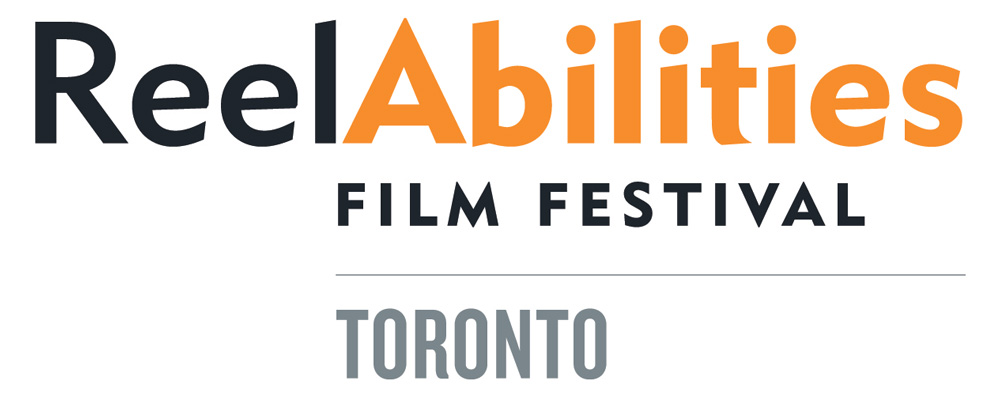


ALSO OF INTEREST
- Available to watch online: Thu, Oct 22, 2:00pm - Sat, Oct 24, 2:00pm
- Virtual panel/Q&A: Sat, Oct 24, 2:00pm
Ying Wang / 2019 / English and Mandarin with English Subtitles / Canada / 116 min
GENRE: DOCUMENTARY
TOPIC: FAMILY, IMMIGRATION, SCHIZOPHRENIA
TYPE: FILM
The World is Bright follows the real-life journey of an elderly Chinese couple searching for the truth behind their son Shi-Ming’s sudden death in Canada. Shi-Ming was buried before his parents living in Beijing were notified. Over ten years, director Ying Wang documents Shi-Ming’s parents as they enter a long and arduous legal battle to understand how their son – a young Canadian immigrant – could have died. Shi-Ming’s parents are resilient in their search for truth despite language barriers and overly bureaucratic and complex processes they have to endure. The film uses re-enactments and interviews with Shi-Ming’s friends and family to thoroughly examine the intersection of immigration, family expectations and mental health. While attentively portraying the emotional and physical pains Shi-Ming’s parents go through to try and solve this case, The World is Bright exposes some ugly truths about the Canadian immigration system and its treatment of newcomers living with mental health issues.
JOIN THE CONVERSATION
Join us for a virtual panel with The World is Bright director Ying Wang, Shi-Ming’s family lawyer Lawrence Wong, Dr. Kenneth Fung, Clinical Director of Asian Initiative in Mental Health Program at TWH, and Bonnie Wong, Executive Director of Hong Fook Mental Health Association. The speakers will discuss mental health within immigrant communities in Canada and delve into different ways Canadian immigration law fails to accommodate and support newcomers with mental health experiences.
ACCESSIBILITY
ASL Interpreted, Open Captions
An Active Listener will be available Sat, Oct 24 from 2-4pm to support this program.
Your active listener for this program is Kat.
You can connect with Kat by phone (talk or text) at (647) 474-2338 or by email at katrissing@gmail.com.
CO-PRESENTED WITH

ALSO OF INTEREST
- Available to stream online: Thu, Oct 15, 8 PM through Sun, Oct 25, 8 PM
- Virtual Q&A: Thu, Oct 15, 9:00pm
Streaming of this film is only available to viewers in Ontario, Canada. Virtual Q&A is available worldwide.
Mike Hoolboom / 2020 / English / Canada / 63 min
GENRE: DOCUMENTARY
TOPIC: ACTIVISM, SEXUAL ASSAULT, TRAUMA
TYPE: FILM
Judy Rebick is a seminal, local Toronto feminist figure on the forefront of the Pro-choice movement in Canada since the 1970s, who went on to head the biggest women’s organization in Canada in the 1990s while wrestling with her own personal triumphs and tragedies. This reverent, experimental portrait of an iconic Toronto figure touches on her struggles with mental health and childhood traumas as she becomes a pivotal figure in Canada’s progressive movements. Director Mike Hoolboom presents a poignant portrait of Rebick using her own words layered with striking Super-8 footage, contextualized within a stream of consciousness that chronicles Judy’s iconic moments in Canadian history with a lens on her own personal histories and internal landscape. The rhythm of this portrait mimics the ebbs and flows of the effects of mental illness on life while capturing the strength and resilience of an incomparable human in unprecedented times.
JOIN THE CONVERSATION: Evening with Judy
Join us for our first panel discussion with Judy Versus Capitalism’s iconic Canadian feminist, writer, journalist and radical activist Judy Rebick and moderator Nora Loreto as they discuss Judy Rebick’s lifelong fight for social justice, her own experience with mental health and childhood trauma and Mike Hoolboom’s unconventional approach to documenting his friend’s extraordinary life.
ACCESSIBILITY
ASL Interpreted, Open Captions, Active Listener
An Active Listener will be available Thu, Oct 15 from 8-10:30pm to support this program.
Your active listener for this program is Kat.
You can connect with Kat by phone (talk or text) at (647) 474-2338 or by email at katrissing@gmail.com.
MEDIA PARTNER
CO-PRESENTED WITH


